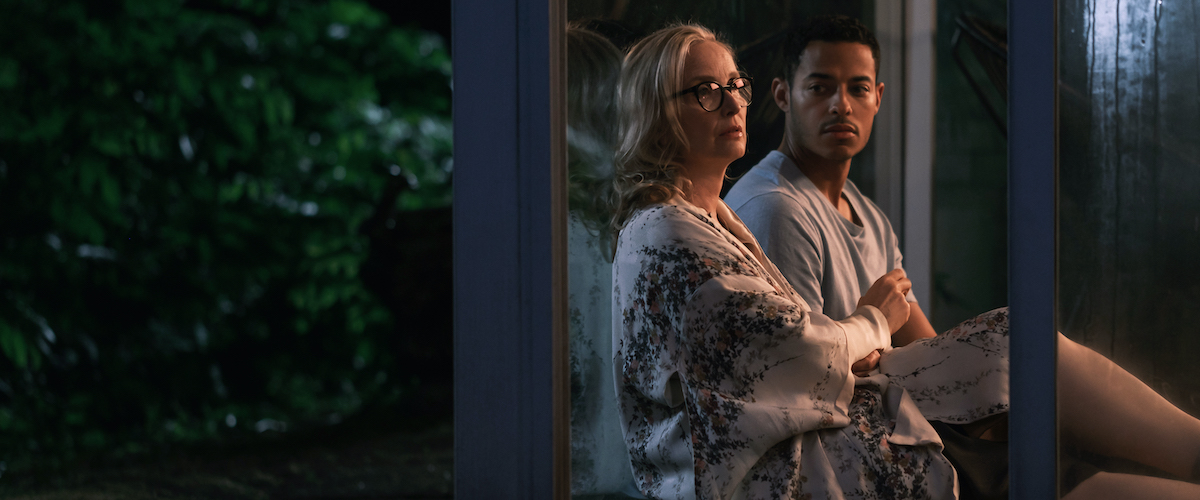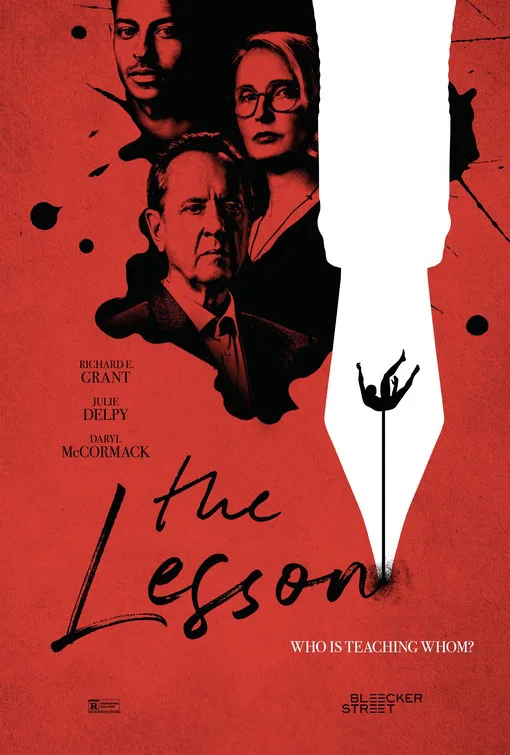Early on in this dreary would-be psychological thriller, the literary mandarin J.M. Sinclair, played by Richard Grant, shares with an interviewer his observations on the writing life. “Now, average writers attempt originality. They fail. Universally. Good writers have the sense to borrow from their betters. But great … great writers … steal.” He then breaks into a cocky grin and laughs wheezily, like Mutley on “Wacky Races.” I’m sure not on purpose; I trust Mr. Grant has been fortunate enough to have never been exposed to that cartoon.
The adage that Sinclair paraphrases may have, um, originated with T.S. Eliot or with Igor Stravinsky, who applied it, of course, to composers. And it’s a not entirely untrue and not entirely un-useful aperçu. Still, if you’ve been writing for a long time, even in the relatively unheralded trenches of criticism, you’re likely sick of hearing it. God knows I am. In any event, Sinclair’s observation, aside from adding dimension to his character (not a particularly interesting dimension, given how tired is his pet observation), also serves as, speaking of phrases we all ought to be thoroughly tired of, a kind of Chekhov’s Act-One-Gun for the plot.
“The Lesson,” directed by Alice Troughton from a script by Alex MacKeith, aspires to be high-toned but only gets to the peak of a cliché slag heap. The ostensible protagonist is Daryl McCormack’s Liam, first seen being interviewed himself, speaking of his first novel, about a ruined patriarch trying to reassert power over his fraying realm. In a flashback, the unpublished Liam is summoned by “The Agency” (not the C.I.A.) to audition for a tutoring gig. Bertie, the son of literary lion Sinclair and his French wife Hélène (Julie Delpy), needs a leg up to get into Oxford. Young and pale and poor of attitude, Bertie (Stephen McMillan) resists Liam’s friendly suggestions about learning critical thinking and insults the guy at family dinners. Nevertheless, Liam gets the gig, moves into the family’s palatial manor (this is a world in which literary mandarin status still pays big), and starts putting Post-It notes on his mirror; observations on the family that he hopes will feed a literary work of his own.
The Sinclairs are one of Tolstoy’s unhappy families; an older son, Felix, committed suicide by drowning himself in the manor lake a few years back. In another excerpt from a public interview, J.M. gets into a snit when asked about his son’s death. Among other things, the tragedy seems to have blocked J.M.
Hélène takes to Liam to the extent that she wants to hire him directly, cutting out “The Agency.” In this movie, no one has ever seen any other movies, so Liam thinks this is an excellent idea. And he also very gladly signs an NDA. We also learn that the window of Liam’s room—which had once belonged to Felix (and the house does appear to have a lot of rooms, so why Liam’s been boarded in such a grief-weighted space doesn’t make much sense but go on)—looks directly into Hélène and J.M.’s bedroom, and one night Liam watches while J.M. performs cunnilingus on his wife. “Don’t do that, dude,” I said to the screen as this happened. “This is a border from which you cannot step back.” Oops, then Hélène sees him watching and smiles. “You’re in it now, pal,” I said to the screen. But honestly, I wasn’t that concerned.
Because, come on: this is one of those movies that goes on for an hour and forty minutes because someone doesn’t have the common sense to get the hell out of Dodge twenty minutes in. When J.M. asks to read Liam’s novel-in-progress and offers his own work for Liam’s delectation, the subsequent comparing notes session goes poorly, and Liam contrives to get some of his pride back, helped by an explosive (or so the movie hopes) discovery.
When all the dominoes fall, it’s so neat, so pat; there’s no credibility, and with that gone, any opportunity for emotional resonance goes pffffft as well. Some might expect this picture to be redeemed by juicy performances, but that’s not the case; while none of the performers phone it in, the script gives them only the most commonplace ideas and states to convey. “The Lesson” is a wash.
Now playing in theaters.




















